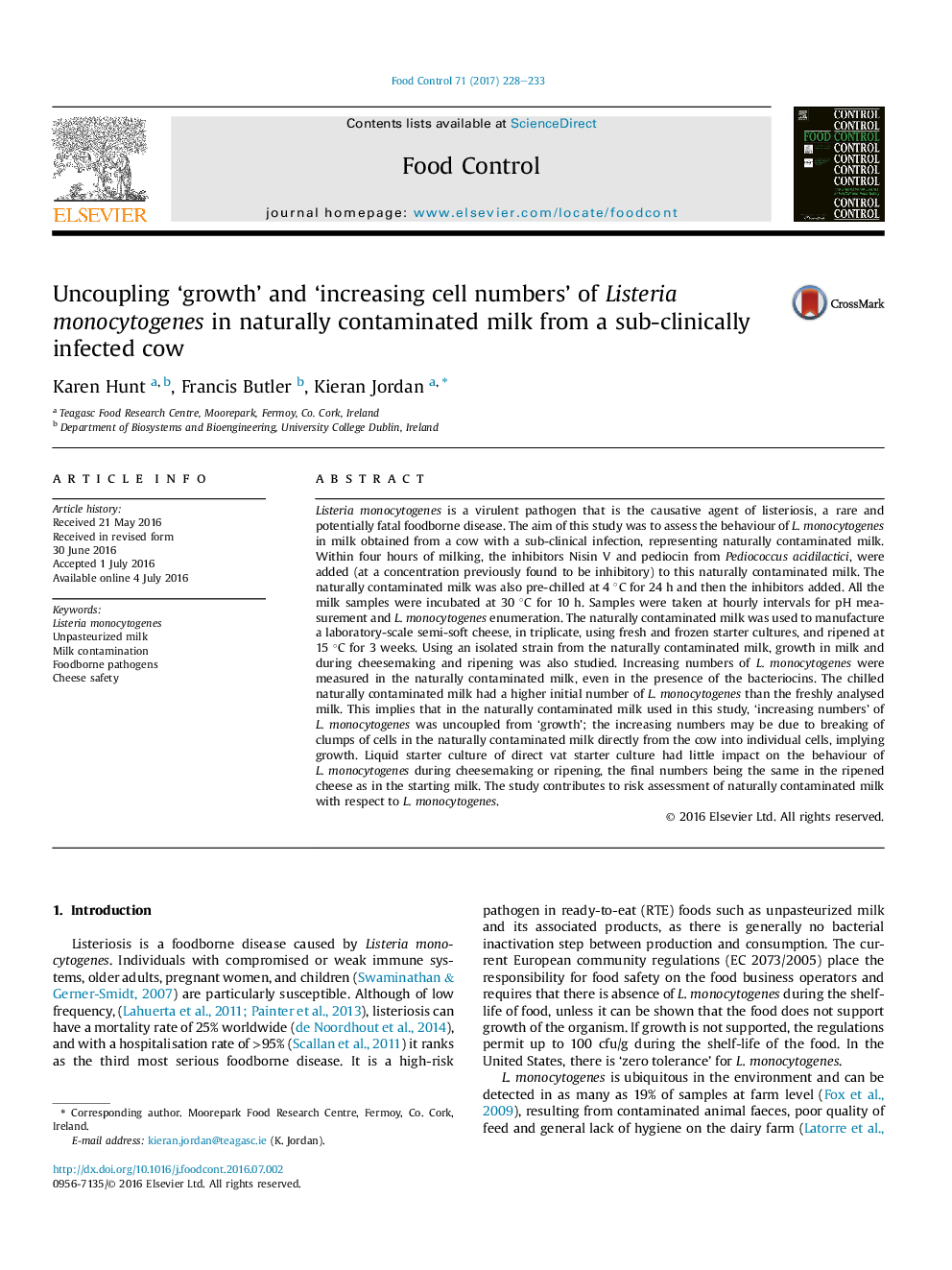| Article ID | Journal | Published Year | Pages | File Type |
|---|---|---|---|---|
| 6389947 | Food Control | 2017 | 6 Pages |
â¢Behaviour of Listeria monocytogenes naturally contaminated unpasteurized milk was studied.⢓Growth” was uncoupled from increasing numbers.â¢Starter culture used did not influence L. monocytogenes numbers during cheesemaking.â¢L. monocytogenes remained a public health concern in the ripened cheese.
Listeria monocytogenes is a virulent pathogen that is the causative agent of listeriosis, a rare and potentially fatal foodborne disease. The aim of this study was to assess the behaviour of L. monocytogenes in milk obtained from a cow with a sub-clinical infection, representing naturally contaminated milk. Within four hours of milking, the inhibitors Nisin V and pediocin from Pediococcus acidilactici, were added (at a concentration previously found to be inhibitory) to this naturally contaminated milk. The naturally contaminated milk was also pre-chilled at 4 °C for 24 h and then the inhibitors added. All the milk samples were incubated at 30 °C for 10 h. Samples were taken at hourly intervals for pH measurement and L. monocytogenes enumeration. The naturally contaminated milk was used to manufacture a laboratory-scale semi-soft cheese, in triplicate, using fresh and frozen starter cultures, and ripened at 15 °C for 3 weeks. Using an isolated strain from the naturally contaminated milk, growth in milk and during cheesemaking and ripening was also studied. Increasing numbers of L. monocytogenes were measured in the naturally contaminated milk, even in the presence of the bacteriocins. The chilled naturally contaminated milk had a higher initial number of L. monocytogenes than the freshly analysed milk. This implies that in the naturally contaminated milk used in this study, 'increasing numbers' of L. monocytogenes was uncoupled from 'growth'; the increasing numbers may be due to breaking of clumps of cells in the naturally contaminated milk directly from the cow into individual cells, implying growth. Liquid starter culture of direct vat starter culture had little impact on the behaviour of L. monocytogenes during cheesemaking or ripening, the final numbers being the same in the ripened cheese as in the starting milk. The study contributes to risk assessment of naturally contaminated milk with respect to L. monocytogenes.
